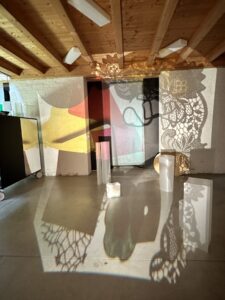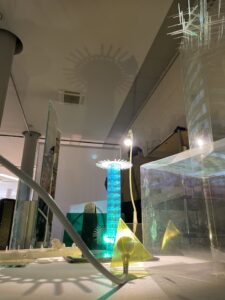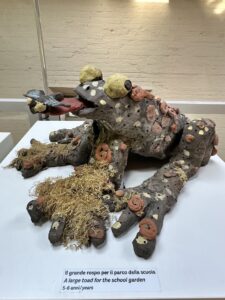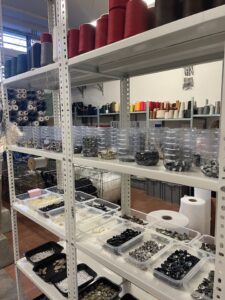“The atelier… is a place of research where imagination, rigour, experiment, creativity and expression would interweave and complete each other. The atelierista … is more an artist than an teacher but works closely with teachers, both engaged with processes of learning. Her contribution is to introduce an ‘aesthetic dimension ‘ or poetic languages’ into the learning process. “(Vecchi, Vea. ‘Arts and Creativity in Reggio Emilia’. Routledge, 2010.)
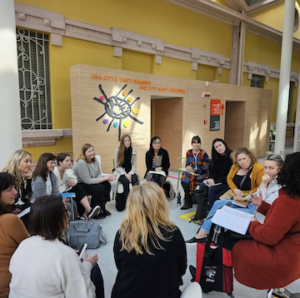
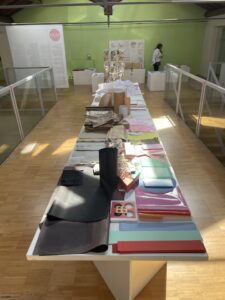
In 2023 I participated in an international study group on the Reggio Emilia Approach at the Loris Malaguzzi International Centre in Reggio Emilia, Italy. Alongside over 100 participants from across Canada, I was exposed to this rigorous educational model that centralizes ‘poetic languages’ (arts-based communications) and participant-driven inquiry. I attended daily lectures by pedagogistas and ateliestas and participated in studio workshops where I learned about the socio-political beginnings of the approach, the collaborative model that allows artists to infuse the learning environment with creative proposals, and the impact of embedding documentation and rigorous modes of observation into the learning process. I was exposed to specific long-term inquiry projects that were directed by ateliestas, met and made connections with artists working in this role.
‘The Reggio Emilia Approach is founded on:
the daily presence of a plurality of educators and teachers with children
the atelier and the person of the atelierista
in-school kitchens
the environment as educator
documentation for making creative knowledge processes visible
the pedagogical and educational practice co-ordinating group
the participation of families’
(https://www.reggiochildren.it/en/reggio-emilia-approach/)
